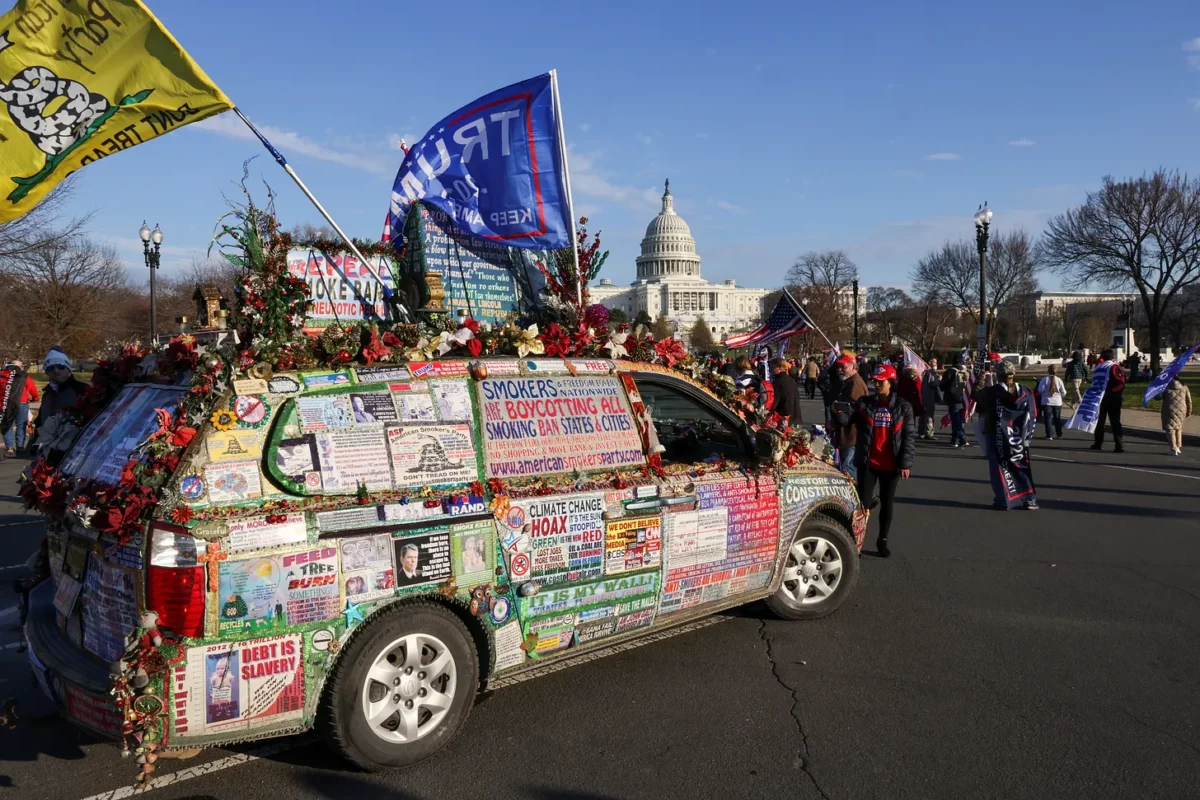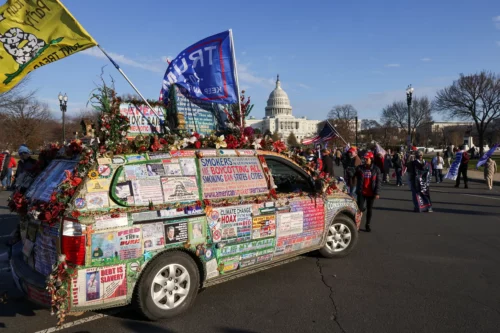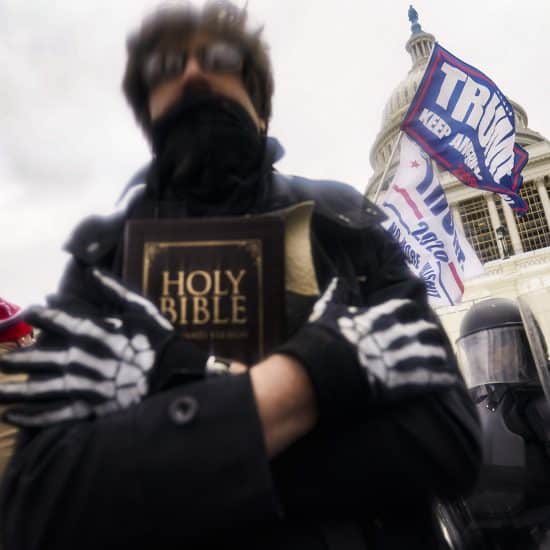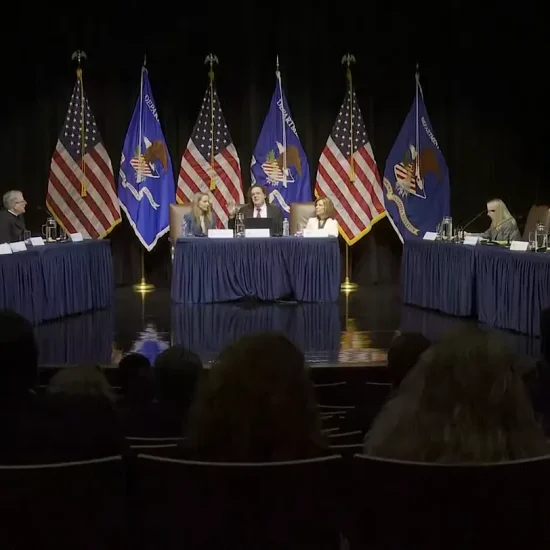
On the Tuesday of the last week of the church year (Nov. 28, 2023), the lectionary offered two readings in juxtaposition. It was a brilliant choice in scriptural curation, and the texts when placed alongside each other speak profoundly to our political moment in the United States.
Here is part of the first text, which was Daniel 2:31-45:
“You were looking, O king, and there appeared a great statue. That statue was huge, its brilliance extraordinary; it was standing before you, and its appearance was frightening. The head of that statue was of fine gold, its chest and arms of silver, its midsection and thighs of bronze, its legs of iron, its feet partly of iron and partly of clay. As you looked on, a stone was cut out, not by human hands, and it struck the statue on its feet of iron and clay and broke them in pieces. Then the iron, the clay, the bronze, the silver, and the gold were all broken in pieces and became like the chaff of the summer threshing floors, and the wind carried them away, so that not a trace of them could be found. But the stone that struck the statue became a great mountain and filled the whole earth.
“That was the dream; now we will tell the king its interpretation. … And in the days of those kings the God of heaven will set up a kingdom that shall never be destroyed, nor shall this kingdom be left to another people. It shall crush all these kingdoms and bring them to an end, and it shall stand forever, just as you saw that a stone was cut from the mountain not by hands and that it crushed the iron, the bronze, the clay, the silver, and the gold. The great God has informed the king what shall be hereafter. The dream is certain and its interpretation trustworthy.”
Most modern biblical scholars agree that Daniel is a late addition to the canon of the Hebrew Bible that speaks retrospectively. In other words, a sixth-century BCE setting is pretended, but the narrator knows about historical events that have taken place for centuries afterward. Here, Daniel narrates the rise and fall of empire after empire. That is what happens to empires — they rise and fall. That is what happens to kings — they have power, might, and glory until they do not. All the kingdoms of the earth are dust in the wind. Only the kingdom of God stands forever.
Then the lectionary offered Luke 21:5-11:
When some were speaking about the temple, how it was adorned with beautiful stones and gifts dedicated to God, he said, “As for these things that you see, the days will come when not one stone will be left upon another; all will be thrown down.”
… “When you hear of wars and insurrections, do not be terrified, for these things must take place first, but the end will not follow immediately.” Then he said to them, “Nation will rise against nation and kingdom against kingdom; there will be great earthquakes and in various places famines and plagues, and there will be dreadful portents and great signs from heaven.”
The Herodian temple was glorious, one of the wonders of the ancient world. All that survives of it is a wall. Nations rise, temples are built, palaces are erected, kings and gods are honored, and all seems right with the world. But then nations fall, temples fall, palaces are burnt, and kings and gods are dethroned.

A vehicle with Christmas decorations, pro-Trump signs, and conspiracy messages is seen during a rally to protest the results of the 2020 presidential election in Washington, D.C., on Dec. 12, 2020. (Jonathan Ernst/Reuters)
Just about all of us approach the 2024 election year with dread. It is like that moment when a roller coaster has ratcheted its way up to the very top before speeding its curvy way downhill. We don’t know what 2024 will bring, but it is hard to imagine anything other than a runaway rollercoaster. We don’t know whether the insurrectionary, democracy-threatening chaos of 2020/21 was a blip or a portent.
We live in a time of great precariousness. We would like the nation that we love, the democracy that we cherish, the only political kingdom that we have ever known, to come through this time of testing. We will do our part to see that it does. But in these texts, we are reminded that the only kingdom sure to last is the kingdom of God. With that assurance, we reach the top of the roller coaster, and we wait.
David P. Gushee is distinguished university professor of Christian ethics at Mercer University and chair of Christian social ethics at Vrije Universiteit (“Free University”) Amsterdam/IBTS. He also serves on the board of trustees at Word&Way and is the author of several books, including his latest Defending Democracy From Its Christian Enemies.

NOTE: This is part of our Unsettling Advent devotionals running Dec. 3-Dec. 24. You can subscribe for free to receive them each morning in your inbox.






